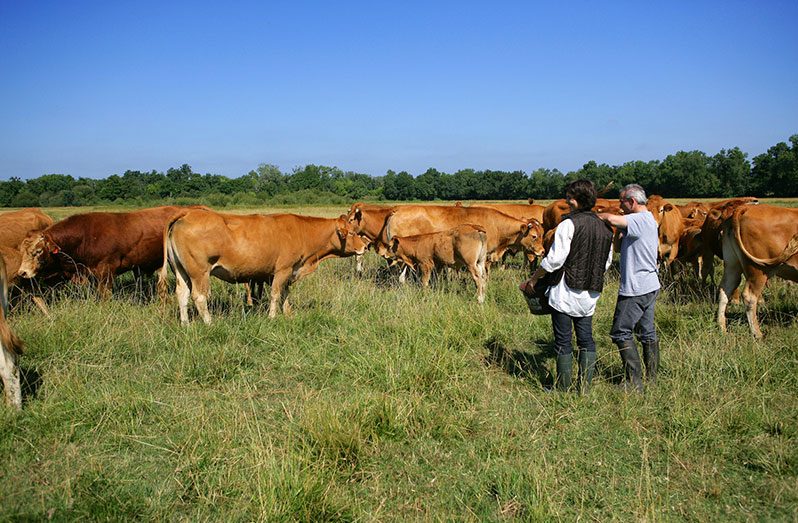HIGH-quality proteins from meat and other foods of animal origin are instrumental in maintaining and restoring health. Therefore, promoting universal access to these foods, and including them in diets is fundamental, particularly in medium and low-income countries, according to experts at a scientific seminar. Nutritional specialists from different regions of the world attended the scientific seminar, “Proteins for All: The Importance of Protein Quality in Equitable, Sustainable Food Systems”, one of the preparatory events for the Food Systems Summit convened by UN Secretary-General, António Guterres.
The seminar was organised by the prestigious Riddet Institute, a New Zealand-based, world-renowned centre dedicated to strategic research on food and nutritional sciences; the Punjab Agricultural University in India, the largest educational centre in Asia focusing on food production matters; the Global Dairy Platform, a group of companies, scientific institutions and other stakeholders committed to the sustainable and healthy production of milk and its by-products; and the Inter-American Institute for Cooperation on Agriculture (IICA).
Understanding the type and amount of proteins found in each food is essential for those who are working to improve the diet of the mushrooming global population, said the participating specialists, who highlighted the unparalleled contribution of animal protein to a nutritious and healthy diet. The event was supported by the International Dairy Federation, the International Egg Commission, the International Meat Secretariat, the International Poultry Council, and the Global Roundtable for Sustainable Beef.
Paul Moughan, Professor at the Riddet Institute, who is considered a global authority on protein metabolism, indicated that, “Not only is the amount of protein that people eat of tremendous importance, but that in evaluating diets, we must also consider protein quality, ensuring that in developing countries, people have access to what they require for development.”
Responding to the arguments against animal production and its emission of greenhouse gases that contribute to climate change, Moughan warned that the quality of meat proteins, which cannot be replaced by vegetable proteins, should also be assessed when measuring the environmental impact of meat production.
“Only a wide range of proteins guarantees a balanced and healthy diet,” he concluded. Kiran Bains, Professor and Head of the Food and Nutrition Department at Punjab Agricultural University, spoke of the amino acid deficiencies in the diet in India, which is home to approximately 1.4 billion people. Bains explained that, “In populations with limited resources or income, people consume more grains and limited amounts of foods of animal origin. Thus, their diets usually consist of low-quality proteins, which have a negative impact on health. In India, up to 26 per cent of rural and urban inhabitants exhibit dietary deficiencies.
“The consumption of grains that are low in protein may satisfy hunger, produce satiety, and even provide sufficient energy for people,” he warned, “but they certainly do not offer the required amount of amino acids, such as lysine, which may have an adverse effect on the body’s metabolic functions.” Head of Research at the Riddet Institute, Suzanne Hodgkinson spoke about measuring the quality of proteins, and compared various basic foods, based on their level of amino acids.
On the other hand, IICA Director-General, Manuel Otero, cited data to support the importance of animal-based products as sources of healthy nutrition throughout the world. Dairy products are the primary source of calcium for people; vegetable proteins cannot replace animal proteins, because they do not contain the essential amino acids that meat does. Innovations in genetics and animal reproduction have the potential to eliminate diseases, and, in this way to increase the sustainability of livestock production.
Otero mentioned that in developed countries, 80 per cent of the greenhouse gas emissions that contribute to climate change originate from the burning of fossil fuels and not from livestock rearing. “In any case,” he said, “we all know that the attacks on animal production are nothing new.” IICA coordinated a series of discussions and the preparation of the document “On the road to the UN Food Systems Summit: key messages from the perspective of agriculture in the Americas,” which the countries of the Americas agreed to present at the Food Systems Summit 2021. The document prioritises agriculture and farmers – the guarantors of the planet’s food and nutritional security. The summit was convened to raise awareness among the global public and to establish global commitments and measures to transform food systems, not only to eradicate hunger, but to reduce the incidence of food-related diseases and cure the planet. (IICA)




.jpg)










